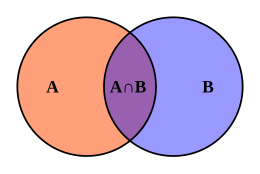Necessary and sufficient conditions


In science, the terms necessary and sufficient are often used. Some conditions are necessary, meaning that they are needed for something to happen. while others are sufficient, meaning that they are enough to make something happen.
Necessity[change | change source]
In logic, a necessary condition for a logical statement is a logical consequence of the statement, in the sense that if statement is true, then the condition must have held.[1]
Sufficiency[change | change source]
A sufficient condition for a statement is a logical precursor of the statement, in the sense that if the condition is true, then so will the statement.[1]
Mixed use of necessity and sufficiency[change | change source]
Generally, a sufficient condition for a statement needs not be a necessary condition for the same statement (and vice versa). This means that some sufficient conditions are not necessary, and that some necessary conditions are not sufficient.[2]
In logic, the term if and only if (shortened to iff) is often used to describe a condition that is both necessary and sufficient.[1]
Australian philosopher John Leslie Mackie introduced the term INUS condition. INUS stands for "insufficient, but necessary part of an unnecessary but sufficient condition".[3]
Related pages[change | change source]
References[change | change source]
- ↑ 1.0 1.1 1.2 "The Definitive Glossary of Higher Mathematical Jargon". Math Vault. 2019-08-01. Retrieved 2020-10-08.
- ↑ Swartz, Norman. "The Concepts of Necessary Conditions and Sufficient Conditions". sfu.ca. Retrieved October 8, 2020.
- ↑ Brennan, Andrew (2017). Zalta, Edward N. (ed.). The Stanford Encyclopedia of Philosophy (Summer 2017 ed.). Metaphysics Research Lab, Stanford University.
